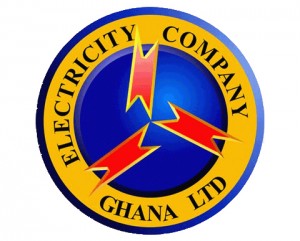ECG to be privatized in 2015, as Ghana loses 2 to 5% of GDP to power shortages
 The Government is considering its options towards the privatisation of the Electricity Company of Ghana (ECG) by the middle of 2015.
The Government is considering its options towards the privatisation of the Electricity Company of Ghana (ECG) by the middle of 2015.
Mr Frank Ocran, Chairman of the Stakeholders Consultation Committee on Energy, who announced this in Accra, on Wednesday, said the move follows Ghana’s qualification to receive $500 million under the Compact Two of the Millennium Development Account to help turn the energy sector around.
Mr Ocran was addressing a meeting the stakeholders held for the media to solicit views on the two options the government intended to choose from: concession and partial privatisation.
Under the Concession, the state would enter into a long-term contract: 20 – 30 years with a private partner, where the private partner would have the exclusive right to operate, maintain and carry out investments in ECG for a defined number of years.
The private partner would have the responsibility for the operation and maintenance of all assets and investment during the period.
The state would retain full ownership of ECG as the asset holding company; at the end of the concession period, control of ECG reverts to the state unless the government decides to extend or re-tender the concession.
Partial privatization would involve the sale of ECG’s shares to a strategic investor with the proven technical, financial capacity and track record in utilities similar in size to ECG to carry out electricity distribution and supply activities.
The sale of shares would either be by; the government selling some of the existing shares in the company that is being partially privatised; or the company itself issuing new shares to the investors, thereby diluting the government’s shareholding in the company or a combination of both these options.
Mr Ocran said the challenges facing the energy sector were enormous and the government could no longer inject capital into ECG.
Therefore, he said, private sector participation was requisite in the running of ECG.
Mr Ocran said the ECG had not been sold to any private entity.
The compact two has six key areas; ECG financial and operational turn-around project, NEDCo financial and operational turn-around project, regulatory strengthening and capacity building project, access project, power generation sector improvement project, energy efficiency and demand side management project.
He explained that the company’s assets would still be owned by the government under the arrangement.
Mr Ocran explained that Ghana loses about two percent to five of GDP annually as a result of lost economic output due to the insufficient and unreliable power supply.
ECG had also recently been suffering from both operational and net income losses, he said
.
This means it is not in a position to fund its much-needed capital investment programme of GH¢10.8 billion over 25 years. This represents an annual average of over GH¢400million in real terms, he added.
Mr Mawunyo Rubson, Power Expert, Millennium Development Authority, said the signing of the compact was not forced on the government.
Mr Sulemana Abubakari, Deputy Director, Power Distribution said: “We have not signed a contract yet, we are soliciting views to take a decision and there will be international competitive bidding.
Source: GNA
